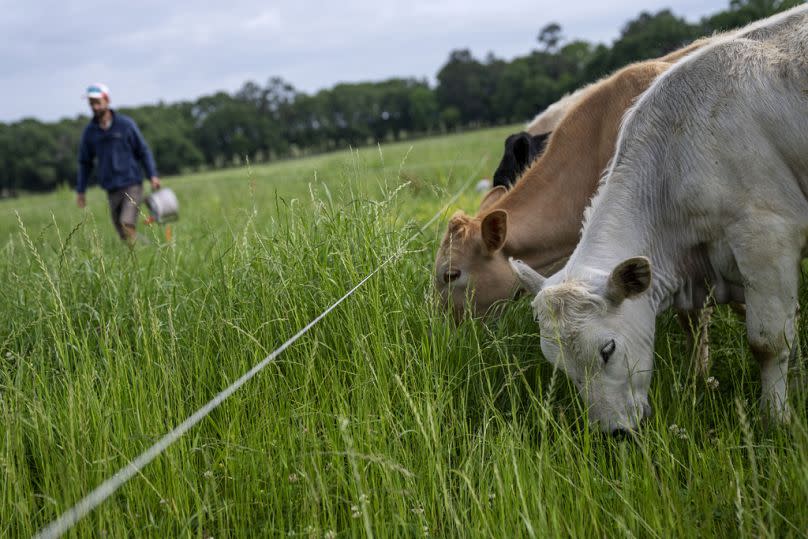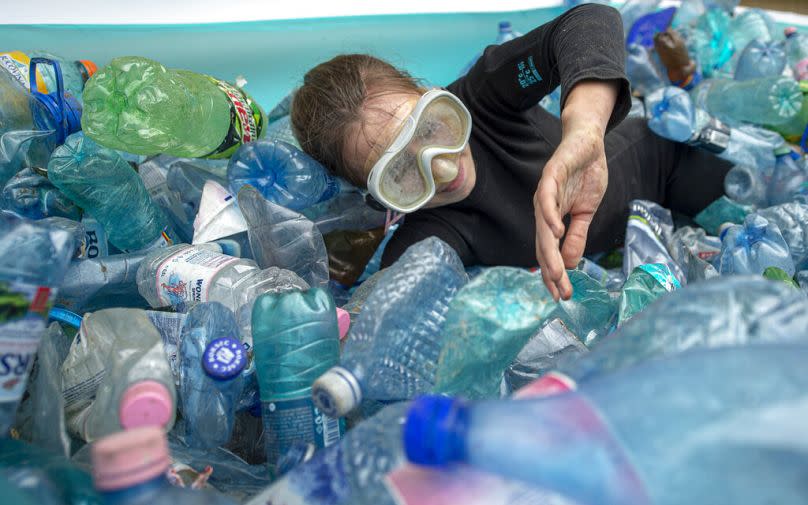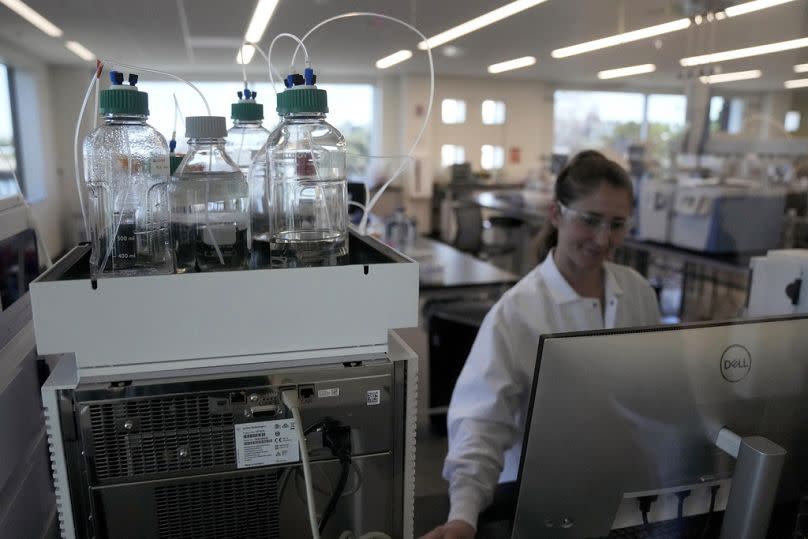Generative AI is being used to improve processes in many industries, from automating office work to creating better marketing materials, but where it can have greater impact is in science and engineering.
When used in conjunction with biology, generative AI can also be applied to reduce or even eliminate industrial material production processes and significantly reduce the environmental cost of human consumption.
Synthetic biology, a market worth €10.4 billion in 2022, has the potential to create products beyond our dreams; in fact, the McKinsey Global Institute has predicted that 60% of everything humans consume could be produced using biology.
We are already seeing a number of companies using synthetic biology to produce a variety of products in critical industries such as materials, chemicals, food, agriculture and pharmaceuticals.
Dissolving food and chemicals
For those who aren’t sold on plant-based food alternatives, lab-grown food products may look like the future.
Take a company like Perfect Day, which produces bio-based milk using precision fermentation; This involves encoding milk protein DNA sequences into microorganisms such as yeast or fungi to produce molecularly identical milk proteins such as casein or whey, which are then fermented with nutrients and sugar. tanks (similar to brewing) produce the same traditional proteins that come from dairy.
Perfect Days’ milk protein produces up to 97% fewer carbon emissions and 99% less blue water than conventional milk production.
According to the company, if just 5% of milk consumed in Europe were animal-free, this would save the equivalent of 660,000 world trips in oil; Governments need to take more significant steps to invest in bio-based dairy and encourage consumers to make the switch.

Bio-based chemicals are one example that has been making headlines recently; The US government has set a goal of producing at least 30% of its chemicals through biomanufacturing processes over the next 20 years.
With global emissions from the chemical industry accounting for around 2% of total CO2 emissions in 2021, bio-based chemicals have the potential to significantly reduce our dependence on fossil fuels.
One company gaining significant traction in the space is Solugen, which mixes corn syrup with genetically modified enzymes to replace common chemicals normally made using phosphates and oil.
However, many companies in this space struggle to find commercial traction.
We will need to see significant investments, both public and private, to accelerate the production of bio-based chemicals.
Dissolving ingredients
There is also the use of synthetic biology for the production and recycling of materials. Let’s take concrete; it is necessary to build our homes and offices, but it has a huge carbon footprint; Cement production accounts for 8% of the world’s total CO2 emissions.
Biologists have now developed new forms of low-carbon concrete that absorb CO2 using an enzyme found in blood; When small cracks form in concrete, the enzyme interacts with CO2 and fills the crack by mimicking the properties of concrete.
Similarly, synthetic biology has the potential to transform the life cycle of materials such as plastics and polymers commonly used in water bottles and clothing.


First, scientists have developed enzymes that can break down PET plastics commonly found in beverage bottles, helping to reduce the environmental impact of our waste.
Similarly, we can produce new forms of plastic using enzymes, meaning we can be less dependent on petrochemicals.
However, most existing low-carbon concrete solutions are expensive technologies that are far from commercialization or lower-cost alternatives that provide limited emissions reductions.
Most of the innovative technology currently available in space is only slightly beyond proof of concept. Developing and scaling the technology for widespread application will require significant investment.
Accelerating R&D
Synthetic biology, in essence, attempts to change the sequence encoded in a protein’s DNA so that it does something else.
The traditional nature of research is based on trial and error; This means that creating effective products has historically been extremely costly and time-consuming. It is not uncommon for 95% of engineered proteins tested in the laboratory to fail to meet design specifications.
This is where generative AI comes into play: large language models can be trained on DNA sequences and experimental results on known proteins, meaning we can predict optimal DNA sequences for a protein that exhibits desired properties.
This allows scientists to significantly increase the likelihood of achieving design goals when designing a protein.


Using the latest biological research and analysis of protein sequences, generative AI could give scientists the ability to “reverse engineer” a protein to achieve the desired output in fewer, more successful experiments than was possible with previous methods.
Synthetic biology companies working in the space are already testing generative AI models to improve their platforms. LanzaTech, for example, is experimenting with generative AI to design DNA sequences for microbe-producing enzymes for clothing, plastics, jet fuel, and even perfume; Zero Coffee uses an AI-powered taste optimization platform to develop “seedless coffee.”
The software also has the potential to provide generative AI models that synthetic biology companies can apply to their own processes.
Cradle’s platform, trained on wet lab-generated data as well as publicly available data and customer data, enables users to design desired protein function and properties, making it possible to build and scale protein-based products much faster and more cost-effectively. -effectively.
The future is in biology
So, while the use of generative AI in biotechnology is already a huge market (worth almost €50 million in 2022), it is still nothing compared to the synthetic biology market as a whole. We need to bridge the gap between AI engineers and biologists with the goal of making a positive impact on society.
While generative AI in biology holds great promise for producing sustainable solutions, addressing the climate crisis requires a multifaceted approach that includes policy changes, technological innovations, and investment.
For generative AI to have a meaningful impact on the climate crisis, there must be cross-collaboration between different governments, investors, Big Tech, and emerging startups.
Stef van Grieken is the co-founder and CEO of Cradle.
At Euronews, we believe that all opinions are important. Contact us at view@euronews.com to send your suggestions or pitches and be part of the conversation.